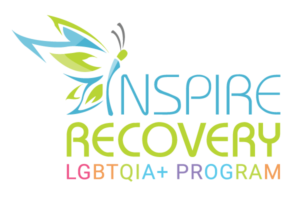Are you or is someone you struggling with addiction?
Inspire Recovery can help! Call 561-899-6088 for a free & confidential consultation.
Life After Treatment: Building a Fulfilling and Sober Life as an LGBTQ Person
Life after treatment can be a transformative and empowering journey for LGBTQ folks in recovery. Building a fulfilling and sober life after treatment requires vigorous action, intentional effort and support in order to achieve long-term sobriety and internal freedom. Recovery is an ongoing journey of self-awareness, growth, and self-discovery, and there are many unique challenges and opportunities that one may face while on this journey, particularly within the LGBTQ community.
One of the first steps in building a meaningful and sober life as an LGBTQ person after treatment is to prioritize self-care. This includes taking care of one’s physical, mental, emotional, and spiritual well-being. Engaging in physical activities, eating healthy and nourishing one’s body, getting proper sleep, and finding helpful ways to manage stress are important aspects of self-care that can support recovery.
Attending regular therapy or counseling can also be constructive in nurturing one’s mental health, addressing unresolved trauma, and working through emotional barriers to support a person’s recovery. LGBTQ individuals may face discrimination, stigma, and trauma related to their LGBTQ experience and having therapeutic support to work through these challenges can be a necessary component to one’s recovery and support self-care.
Building a supportive recovery community is also essential to one’s life post-treatment. LGBTQ folks in recovery may benefit from connecting with others who share similar experiences and challenges. Joining LGBTQ-specific recovery support groups, such as Alcoholics Anonymous (AA), and Narcotics Anonymous (NA) can provide a safe and understanding space for sharing struggles, challenges, and celebrating victories with others who can relate. Building relationships with supportive friends, family members, and allies who respect and affirm one’s sexual orientation and gender identity can greatly contribute to a fulfilling and sober life.
Setting boundaries is also an important aspect of creating a peaceful life in recovery. As we heal and grow through our journey in recovery, we may outgrow people who are no longer serving us in a positive and fulfilling way. Self-discovery involves understanding and honoring your own needs, desires, and values, and taking time to reflect on what is truly important to you, what makes you feel comfortable and what aligns with your recovery goals. This may involve setting boundaries or limits with people who may not align with our values or goals, and may pose as risks or triggers to our emotional well-being.
Working a 12-step program of recovery is crucial to increasing our awareness and protecting our emotional well-being. Finding a sponsor and working the 12 steps will allow us to find healing and peace that will support self-love, self-awareness, and guide us in a lifelong journey of recovery.
Recovery can be challenging but also an opportunity to rediscover what brings us joy and find a healthy balance of work and fun. Recovery requires vigorous action and work, but finding ways to have fun in recovery is also important. Exploring new hobbies and interests such as painting, music, dancing, or cooking can help us discover new passions and talents that support fun in recovery. It’s also important to connect with others in recovery, laugh, and allow ourselves to be playful. Laughter is a powerful tool in recovery as it reduces stress, boosts mood, and fosters meaningful connection with others.
Building a fulfilling and sober life as an LGBTQ person after treatment involves setting and pursuing meaningful goals. This may include personal, professional, or educational goals that align with one’s values and passions. Having a sense of purpose and direction in life can contribute to a sense of fulfillment and motivation to maintain sobriety.
Recovery is a unique and personal journey for each person. It is important to practice self-care, find a supportive community, and approach recovery with an honest and open-minded attitude in order to discover meaning and purpose. With the right support and resources, LGBTQ individuals can build a rewarding and sober life that aligns with their authentic selves.









